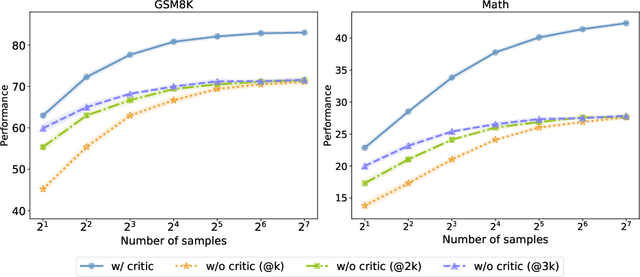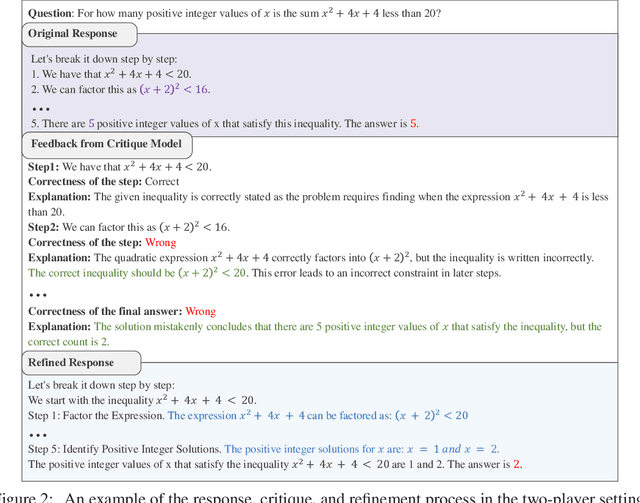Dingwen Yang
ChartE$^{3}$: A Comprehensive Benchmark for End-to-End Chart Editing
Jan 29, 2026Abstract:Charts are a fundamental visualization format for structured data analysis. Enabling end-to-end chart editing according to user intent is of great practical value, yet remains challenging due to the need for both fine-grained control and global structural consistency. Most existing approaches adopt pipeline-based designs, where natural language or code serves as an intermediate representation, limiting their ability to faithfully execute complex edits. We introduce ChartE$^{3}$, an End-to-End Chart Editing benchmark that directly evaluates models without relying on intermediate natural language programs or code-level supervision. ChartE$^{3}$ focuses on two complementary editing dimensions: local editing, which involves fine-grained appearance changes such as font or color adjustments, and global editing, which requires holistic, data-centric transformations including data filtering and trend line addition. ChartE$^{3}$ contains over 1,200 high-quality samples constructed via a well-designed data pipeline with human curation. Each sample is provided as a triplet of a chart image, its underlying code, and a multimodal editing instruction, enabling evaluation from both objective and subjective perspectives. Extensive benchmarking of state-of-the-art multimodal large language models reveals substantial performance gaps, particularly on global editing tasks, highlighting critical limitations in current end-to-end chart editing capabilities.
Enhancing LLM Reasoning via Critique Models with Test-Time and Training-Time Supervision
Nov 25, 2024



Abstract:Training large language models (LLMs) to spend more time thinking and reflection before responding is crucial for effectively solving complex reasoning tasks in fields such as science, coding, and mathematics. However, the effectiveness of mechanisms like self-reflection and self-correction depends on the model's capacity to accurately assess its own performance, which can be limited by factors such as initial accuracy, question difficulty, and the lack of external feedback. In this paper, we delve into a two-player paradigm that separates the roles of reasoning and critique models, where the critique model provides step-level feedback to supervise the reasoning (actor) model during both test-time and train-time. We first propose AutoMathCritique, an automated and scalable framework for collecting critique data, resulting in a dataset of $76,321$ responses paired with step-level feedback. Fine-tuning language models with this dataset enables them to generate natural language feedback for mathematical reasoning. We demonstrate that the critique models consistently improve the actor's performance on difficult queries at test-time, especially when scaling up inference-time computation. Motivated by these findings, we introduce the critique-based supervision to the actor's self-training process, and propose a critique-in-the-loop self-improvement method. Experiments show that the method improves the actor's exploration efficiency and solution diversity, especially on challenging queries, leading to a stronger reasoning model. Lastly, we take the preliminary step to explore training self-talk reasoning models via critique supervision and showcase its potential. Our code and datasets are at \href{https://mathcritique.github.io/}{https://mathcritique.github.io/}.
AgentGym: Evolving Large Language Model-based Agents across Diverse Environments
Jun 06, 2024



Abstract:Building generalist agents that can handle diverse tasks and evolve themselves across different environments is a long-term goal in the AI community. Large language models (LLMs) are considered a promising foundation to build such agents due to their generalized capabilities. Current approaches either have LLM-based agents imitate expert-provided trajectories step-by-step, requiring human supervision, which is hard to scale and limits environmental exploration; or they let agents explore and learn in isolated environments, resulting in specialist agents with limited generalization. In this paper, we take the first step towards building generally-capable LLM-based agents with self-evolution ability. We identify a trinity of ingredients: 1) diverse environments for agent exploration and learning, 2) a trajectory set to equip agents with basic capabilities and prior knowledge, and 3) an effective and scalable evolution method. We propose AgentGym, a new framework featuring a variety of environments and tasks for broad, real-time, uni-format, and concurrent agent exploration. AgentGym also includes a database with expanded instructions, a benchmark suite, and high-quality trajectories across environments. Next, we propose a novel method, AgentEvol, to investigate the potential of agent self-evolution beyond previously seen data across tasks and environments. Experimental results show that the evolved agents can achieve results comparable to SOTA models. We release the AgentGym suite, including the platform, dataset, benchmark, checkpoints, and algorithm implementations. The AgentGym suite is available on https://github.com/WooooDyy/AgentGym.
 Add to Chrome
Add to Chrome Add to Firefox
Add to Firefox Add to Edge
Add to Edge